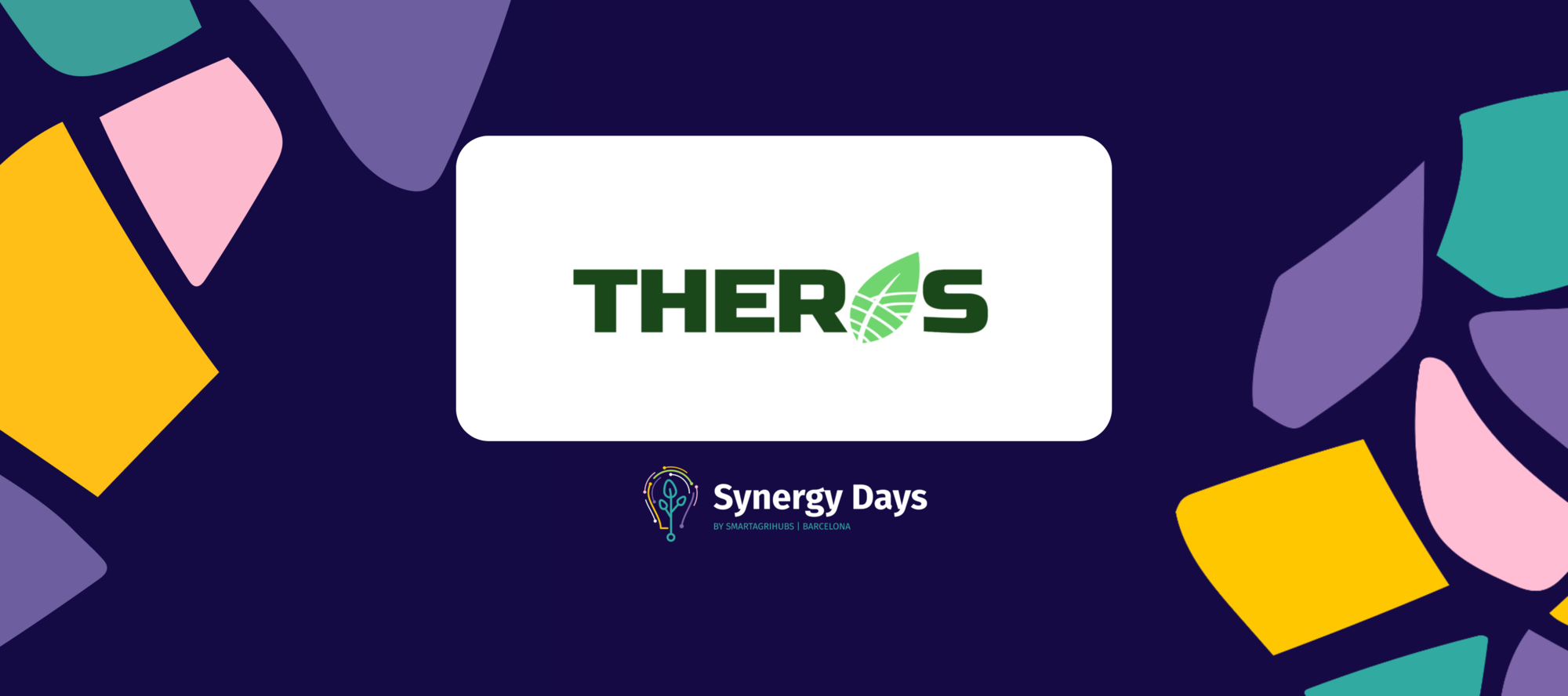Synergy Days 2024 projects: THEROS

Synergy Days is designed to celebrate and showcase European research projects that are transforming the European agri-food sector. Who are they, and how are they using digital technology to innovate the sector? We spoke to THEROS to learn more about the project, its goals and journey.
About THEROS
THEROS, a Horizon Europe project, aims to modernize the verification process for organic and geographical indication food products. It will use innovative technologies such as Earth Observation, photonics, Internet of Things, DNA authenticity methods, and blockchain to enhance security, transparency, and interoperability in the food supply chain. The project will focus on efficient detection of fraudulent cases, monitoring of quality and sustainability, and better management of data for decision-making and support to authorities.
Learn more on their website.
What inspired the creation of your project?
The THEROS project was inspired by the need to modernize the verification processes for organic and geographical indications (GI) food products. The project aims to address the growing concern over food fraud and non-compliance within the agri-food supply chain. Traditional methods are often labor-intensive and lack the technological sophistication needed to tackle these challenges effectively. THEROS seeks to provide innovative solutions using advanced technologies like Earth Observation, photonics, Internet of Things (IoT), and DNA authenticity methods. By integrating these technologies in combination with machine learning and blockchain, the project aims to enhance the traceability, security, and transparency of food products from farm to fork. The project was perceived to empower stakeholders, including farmers, certification bodies, and policymakers, to make informed decisions and build trust in quality-labelled food products. Through this initiative, THEROS aspires to support sustainable agricultural practices and protect both producers and consumers from fraudulent activities.
What are some of the project goals and first steps towards achieving them?
The THEROS project has made significant progress since its launch. Key milestones include the successful development and testing of a blockchain-based traceability platform, which has been integrated into four pilot projects across Europe. This platform enhances transparency and security in the food supply chain by tracking the lifecycle of products from farm to table. Another major achievement is the deployment of MEMS-based photonic systems and DNA-based authenticity kits, enabling rapid, non-destructive verification of food products. These technologies have been validated in pilot tests, demonstrating their effectiveness in detecting adulteration and ensuring compliance with organic standards. Additionally, the project has developed a dynamic digital product passport (dDPP), facilitating real-time tracking and verification of products. These tools are being used in pilot projects in Spain, Serbia, Greece, and the Czech Republic, covering a wide range of organic and GI-labelled products.
What innovative technologies or methods are you most excited about within your project?
THEROS incorporates several groundbreaking technologies to enhance the verification and traceability of organic and geographical indications (GI) food products. One of the most exciting innovations is the integration of Earth Observation (EO) with novel machine learning algorithms to distinguish between organic and non-organic farming practices. Additionally, the use of MEMS-based photonics systems offers a non-destructive method for verifying product authenticity in real-time. The project also employs IoT sensors to monitor environmental conditions, ensuring the quality of food products during transportation. The blockchain-enhanced traceability system provides a secure and transparent way to track food products across the supply chain, from production to retail. Another notable innovation is the DNA authenticity kit, which allows for rapid and portable verification of food product origins. These technologies, combined with advanced data analytics and artificial intelligence, enable a comprehensive and robust system for preventing food fraud and ensuring compliance with quality standards. The integrated approach not only improves efficiency but also supports sustainable agricultural practices.
What advice would you give to other innovators looking to make an impact in the agricultural / food sector through digital technologies?
For innovators aspiring to make a significant impact in the agricultural and food sector through digital technologies, it is crucial to have a deep understanding of the industry’s specific needs and challenges. Start by actively engaging with key stakeholders such as farmers, certification bodies, and consumers to uncover pain points and opportunities for digital solutions. Focus on developing user-centric technologies that are not only innovative, but also practical and scalable. Embrace open science and collaborative approaches to leverage diverse expertise and resources. Ensure that your solutions enhance traceability, transparency, and sustainability across the food supply chain. Additionally, consider integrating cutting-edge technologies like IoT, blockchain, and machine learning to create robust systems for monitoring, verifying, and improving agricultural practices. Lastly, always remain flexible and adaptive to changing market needs and regulatory environments. By aligning technology with the evolving needs of the agricultural sector, innovators can drive significant positive change and contribute to a more secure and transparent food system.
What is the added value of Synergy Days for your project?
Synergy Days offer a unique opportunity for the THEROS project to connect with key stakeholders and initiatives in the digital and agri-food sectors. This event serves as a platform for networking, knowledge exchange, and collaboration, allowing us to showcase our innovative solutions and learn from the experiences of others. It helps in identifying potential partners and exploring opportunities for scaling our technologies across different regions and applications. Participation in Synergy Days also enables us to stay informed about the latest trends and developments in the sector, ensuring that our project remains aligned with the needs and expectations of the market. The visibility and recognition gained through such events are invaluable for raising awareness about the importance of digital innovation in enhancing food safety, quality, and traceability. Overall, Synergy Days contribute to the project's impact by fostering a collaborative ecosystem that supports innovation and growth.
Want to learn more about the rest of the Synergy Days projects? Sign up for Synergy Portal the to explore the rest of the interviews!